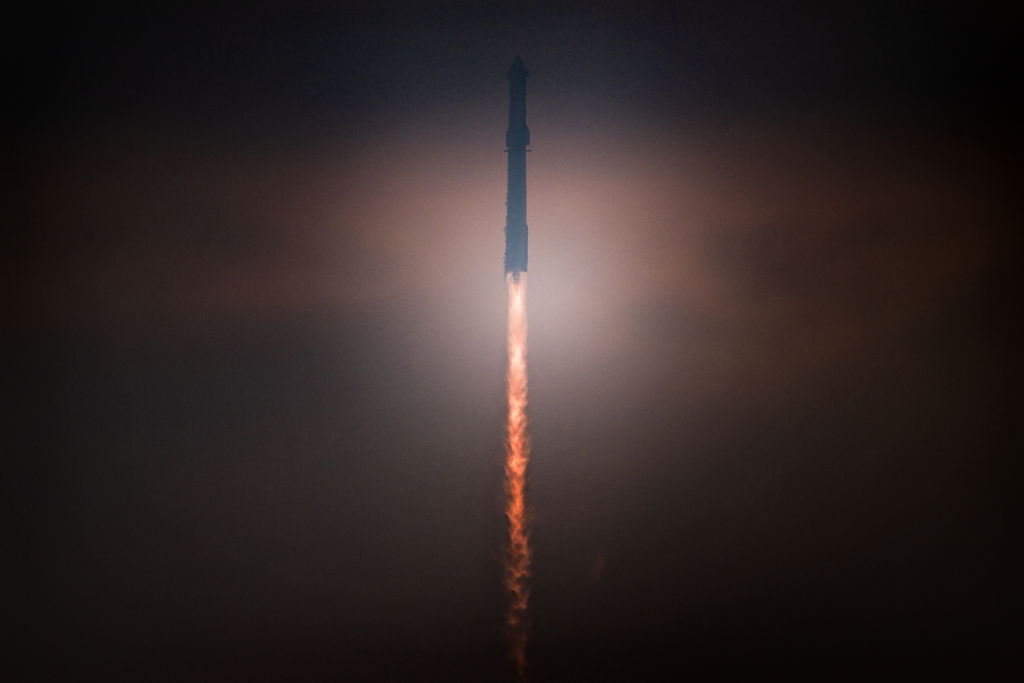We are shifting from the early era of space exploration to a more serious phase extending ever further from Earth’s orbit, focused on key opportunities such as mining and manufacturing as well as military purposes. This newly expanded playing field will determine not only who rules in space, but who ends up dominating Earth.
The protagonists include some familiar faces — the US, Russia and the European Union — but much competition will come from emerging powers, notably India and China, both of which look upon the “final frontier” as critical to their economic and military futures. Yet the rise of non-state space entrepreneurs, notably SpaceX, has introduced a fresh and potentially decisive factor to the new space race.
The ascendancy of private sector interests began with the takeover of the launch business. SpaceX’s focus was on dramatically reducing the cost of putting satellites into orbit, which has changed everything. The growth of SpaceX and the consolidation of the launch industry into a relatively small number of players (SpaceX now handles 86 percent of payloads), is testimony to that growth.
Yet although SpaceX has made its money on satellites orbiting Earth (including its own Starlink communications system), the new focus among space entrepreneurs centers on opportunities outside Earth’s orbit. For the first time, the amount of venture capital money spent on extraterrestrial projects has exceeded the amount devoted to either launch or satellite manufacturing companies. Some are directly making off-Earth enabling devices, such as moon landers. It was a Houston-based private firm, Intuitive Machines, that recently placed the first American lander on the Moon in half a century.
The new post-terrestrial boom is just taking off — space industry global revenues are up tenfold since the early 2000s. The World Economic Forum projects that “by 2035, the space economy is set to reach $1.8 trillion, up from $630 billion in 2023 and averaging a growth rate of 9 percent per annum — a figure significantly above the growth rate of global GDP.” These new opportunities are supercharging a vast entrepreneurial surge that includes more than fifty players creating everything from launch facilities and launch service providers to reusable rockets, landers and vehicles. Space Foundation reports a workforce growth of nearly 5 percent in 2023; Moon landings are reaching their highest frequency since the early 1970s.
The likely big play will occur once rockets, robots and humans begin developing industrial capacity in space — some estimates suggest this will reach a value of $10 billion by 2030. Pharmaceutical companies are looking to new firms like Varda Space Industries, a recent recipient of $90 million in venture funding, to create new drugs in space, where microgravity holds great promise for the development of complex vaccines and medications. Other companies are looking at space manufacturing for such things as semiconductors; space, with its lack of gravity, low temperatures and near-perfect vacuum, makes, as Joshua Western, CEO of Space Forge, an in-space technology manufacturer based in Wales, told the Guardian, “a much better place to do almost any industrial process.”
His is one of the world’s top five mining companies: all startups, two based in California, one in the Seattle area, another in the UK and one in China. Asteroids appear to offer some of the nearer-term mining possibilities; NASA has identified more than 12,000 in near-Earth orbit. One recent study by the Colorado School of Mines projects that within three decades space mining will surpass terrestrial with enormous environmental benefits for the Earth — and perhaps the best way to find the critical metals needed for the much-hyped “energy transition.”
Yet this effort could prove very disruptive, notes one University of Tel Aviv researcher, who suggests that this trend could undermine economies of resource-dependent developing countries and cause “global struggle for resources and power.” Such disruption also occurred during earlier periods of exploration and settlement. Importing food and materials from the “new” world undermined the resource econ- omies of Europe, displacing peasants and undermining the power of the aristocracy.
The creation of global empires was, in large part, dependent on entrepreneurial spirits. In the initial stages of what historian J.H. Parry called “the Age of Reconnaissance,” Europeans were animated with a “fierce competitive pugnacity” that created the first true world economy. Many of these earlier explorers were privately financed and some, like Sir Francis Drake, openly piratical.
Jeff Greason suggests that determined private interests have long been essential to the exploration and settlement of new territories. He’s a scientist with twenty years’ experience as a space entrepreneur and current CEO of Electric Sky, which develops long-range wireless power for air and space vehicles. Greason notes that the Viking settlement of Iceland also was largely an entrepreneurial venture, and that the great outward push of Europe was largely the product, at least initially, of efforts, often cruel in their effect, by groups such as the Dutch East India Company, the French East India Company and the Virginia Company of Adventurers of 1609.
Those joint-stock firms, he suggests, were necessary because the cost of exploration was high and the enterprise inherently dangerous. Governments then, as now, tended to need money for domestic purposes or to ward off rival powers. Similarly, he points out that in the settlement of the US, the government pushed expansionist policies, but the actual construction of canals, railroads or military goods was completed largely by private interests. “We need not have the government as an actor,” he suggests, “but there is a national need for a strategy for advancing in space.”
Greason’s point is well supported by events. NASA has not proven as adept at expanding the commercial frontier as private interests. “The country is not up to it,” suggests Rand Simberg, a long-time aerospace consultant. “Congress just wants to provide jobs in the right ZIP codes and is not going to be serious.”
NASA’s decline reflects government failure to focus on space while, as legal scholar Glenn Reynolds suggests, the private entrepreneurial sector goes its own way. At the same time, Washington’s alliances with glaringly incompetent bureaucratic giants such as Boeing are not likely to improve performance. Boeing’s Starliner, a joint project with NASA, finally set an early June launch date after years of testing, delays and cost overruns.
This is not just a failure of NASA, notes Simberg; it reflects the fact that space has not had a strong advocate in the White House since Ronald Reagan. As former NASA chief Jim Bridenstine says, “We have had programs started and stopped with the whimsical budgets of politicians. It is starts and stops and wasted billions of dollars and lots of time.”
Government-directed space exploration is also not performing miracles in Europe, the birthplace of modern rocketry, which now lags dramatically behind. The continental focus remains on government-directed funding and development to meet the challenge posed by SpaceX and its buccaneering brethren. Yet having broken off their reliance on Russian rockets, the European Space Agency has recently agreed to use SpaceX’s Falcon 9 to deliver new payloads.
The ultimate shape of space, the geopolitical lodestone of the next era, will be determined by a contest between the private sector, where the West is strong, and more concentrated and controlled competition from the likes of China and Russia. Once a superstar of space, Russia is now attempting to reestablish itself in launches, although it seems to lag behind SpaceX, and sanctions imposed after its invasion of Ukraine are likely to put a crimp in its success.
China, Russia and North Korea all see space as a way to provide more lethal potential on Earth. Russia recently vetoed a UN proposal to keep nuclear warheads out of space. China has reorganized its military to set up a fourth branch of service, the Rocket Force. The country has rapidly expanded its reconnaissance capabilities to disrupt military operations of opponents such as the US and is working overtime to develop a potential presence — with human crews — on both the Moon and Mars.
Although they lag behind the West in many areas, China and Russia, according to a recent report from the Secure World Foundation, are rapidly catching up to US capabilities in the dark blue yonder. India is looking into space-based offensive capabilities as well. Given the dominant role already played by missile technology in the Ukrainian and Palestinian conflicts, this widening interest in space may be both well-placed and potentially ominous. US drones haven’t performed so well in Ukraine, while Iranian and Turkish versions did.
China’s advantage, and that of other authoritarian powers, lies in its ability to focus. Vladimir Putin, Kim Jong-un and Xi Jinping don’t have to worry too much about angry taxpayers or pork-seeking congresspeople. China can invest whatever it takes to target satellites that are seen as threatening. If we are facing a new space race, notes Space Force chief General Chance Saltzman, we “just better not let our guard down” as China builds its military abilities in space.
In contrast, despite some considerable cooperation between entrepreneurs, the US and other governments, there is no clear strategic American vision to combat authoritarian designs on space. “The US has no grand strategy for great power competition,” suggests space veteran Greason. “We don’t know what we are doing. We are totally unprepared for the next great game.”
Yet if we cannot compete well in the top-down world of government, the West can, with the right incentives, spark innovation from the private sector. In space industry hotbeds like the thriving Douglas Park complex near Long Beach’s art-deco airfield, small startups abound, part of a remarkable network that extends from Orange County to Hawthorne, home of SpaceX, all the way to another startup hub located in El Segundo. The big boys are no longer the dominant players here. Not a single top traditional aerospace firm, the great signature industry of late twentieth-century California, retains its headquarters there.
These entrepreneurial ventures, to be sure, are motivated less by national glory than by potential profits. They will be able to make alliances with other countries and companies where it makes sense and locate operations similarly. At a time when NASA speaks of spending $30 billion to return to the Moon, people such as Elon Musk and Jeff Bezos can raise their own capital to get to Mars, which is more appealing due to the presence of water and critical minerals.
Ultimately, Western governments cannot lead because of their other commitments and the need to appeal to populations more concerned with matters closer to home. Neither Joe Biden nor Donald Trump — nor the EU — could pass massive spending to colonize and industrialize Mars or exploit asteroids. In contrast, private firms may, understanding the risks as well as the huge potential rewards, be more likely to take such risky steps.
Under any scenario, the new space race will be a complex competition. The nation-states will try to dominate the field, but private companies will continue to channel the motivation and drive reminiscent of early generations of explorers and pirates. Our space future may end up being shaped not by government fiat but through the competitive efforts of self-interested private players willing to take the risks that can turn extraterrestrial dreams into a reality.
This article was originally published in The Spectator’s July 2024 World edition.


















